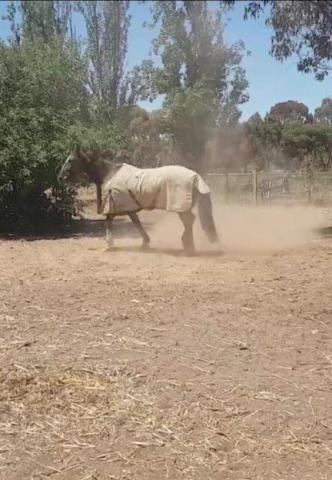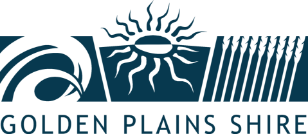Livestock are an important part of Golden Plains industry but when they are on the road they represent a significant danger.
Stock on the road represents a significant danger to motorists. Any loose or wandering stock should be reported immediately.
Owners of stock should take care to ensure that fencing is properly maintained.
Livestock on small acreage

Farm Animals
Farm animals are very popular with owners of small properties, whether you have a goat to keep the grass down or your kids have talked you in to having a pet pig.
There are Council regulations and state legal requirements you must comply with if you own a farm animal.
Council's General Public Amenity Local Law No. 1 limits the number of animals you can have within township residential areas. For example, on a low density residential block 2 hectares in size you can keep, without a permit, 2 dogs, 2 cats, 20 chooks, 1 rooster, and 4 sheep, beyond that you will need a permit. Details on the number and types of animals allowed are in Part 3 of the Local Law. Contact Councils Community Safety team on 5220 7111 for further advice.
Download the permit application form - Animal Keeping on private land application form
Horses
Council's General Public Amenity Local Law No. 1 provides information relating to the number of horses allowed on a property. For a quick reference please click here.
Stallions/Colts
- Stallions and Colts on small acreage can cause concern for neighbouring properties, especially if there is a mare in season. Council recommends that these owners erect double fencing, electrification and screening, by planting shrubs or trees on these properties to prevent damage to common fencing and/or injury to any horse.
- Council may issue a notice objecting to trespassing livestock under the Impounding of Livestock Act 1994 to the owner of the stallion or colt should a trespass occur. Failure to comply with this notice carries a heavy penalty.
Impounding Livestock
Council's Community Safety Officers respond to call outs relating to livestock on Council roads and highways.
In line with the Impounding of Livestock Act 1994, Council can impound livestock and hold them for up to 7 days. If your livestock are tagged correctly, Council will contact you to let you know that your livestock are loose. If they are not tagged, Council has no option but to impound them until the owner contacts us or they are sold to recoup Council costs. Please ensure your livestock are adequately contained to your property.
For further assistance please contact Community Safety on 5220 7111.
Property Identification Codes (PICs)
The first thing you must do when you are looking to own cattle (cows), sheep, pigs, goats, alpacas, llamas, horses, deer or more than 100 poultry is apply for a Livestock Property Identification Code (PIC).
PICs are free and easy to obtain through Agriculture Victoria’s Livestock PICs website.
PICs are important in the event of a serious livestock disease outbreak. They allow for the tracing of animals to detect where an outbreak may have started and to help control and eradicate disease. PICs are also linked to systems such as the National Livestock Identification System (NLIS) and commercial operators will need a PIC to sell and move animals.
To find out more about PICS and to obtain yours, visit the Livestock PICs website.
